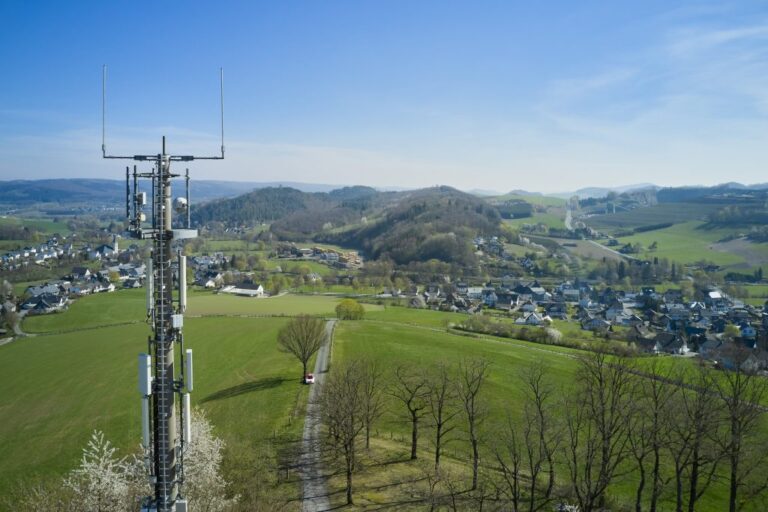Vodafone has installed 119 new LTE stations and 26 5G stations across the country since the beginning of the year.
Vodafone Germany said in a release that it has already equipped 37,000 antennas with 5G technology.
These include 3,400 5G standalone (SA) stations with around 10,000 5G SA antennas, Vodafone Germany said.
Vodafone announced that it has installed 119 new LTE stations and 26 5G stations since early January.
This summer, the company announced that customers would be able to make calls over its 5G network in some locations for the first time. So far, only data services are available via 5G. Vodafone Germany uses Voice over New Radio (VoNR) to enable voice calls over its 5G network. With this technology, voice signals are converted into data packets and transmitted via 5G.
Tanja Richter, head of technology at Vodafone, said: “We are not only expanding our 5G network across the board, we are also strengthening it by introducing new technologies into our network, making the potential of 5G tangible for our customers.” I am.”
Earlier this year, Vodafone Germany announced that it aims to commission 2,700 new 5G sites with a total of 8,000 antennas in the first half of 2023.
During 2022, Vodafone engineers commissioned 5,450 5G sites with more than 16,000 antennas. According to the company, Vodafone is already equipped with a total of 36,000 5G antennas.
The company said its 5G network already serves 65 million people across Germany, almost 80% of the country’s population.
The company previously said its 5G standalone network is now available to around 20 million people across Germany. Vodafone has previously stated that 5G SA technology will be covered nationwide by 2025.
Last year, Vodafone Germany launched its 5G Standalone (SA) network in partnership with Ericsson, Nokia, Qualcomm and Oppo.
In its 5G expansion, Vodafone is leveraging frequencies in the 3.6 GHz, 1.8 GHz and 700 MHz bands in metropolitan areas, residential and suburban areas, and rural areas across Germany.
Vodafone initially launched its 5G network in Germany in 2019 using the 3.5GHz spectrum it acquired from Telefonica in 2018.
Vodafone Germany recently completed a successful field test using Open RAN (O-RAN) technology in Plauen, Saxony.
The German carrier previously announced that it would carry out a comprehensive pilot project for an open 5G radio access network in several locations in Germany. The first two stations of the carrier’s O-RAN technology are located in rural Bavaria. The pilot is expected to begin in early 2023 and will mark the beginning of the wider implementation of Vodafone’s O-RAN technology across Vodafone’s European mobile network.
The pilot project will use O-RAN hardware and software that Vodafone successfully tested in the UK earlier this year. Samsung is currently contributing mobile technology and software to these O-RAN trials.


